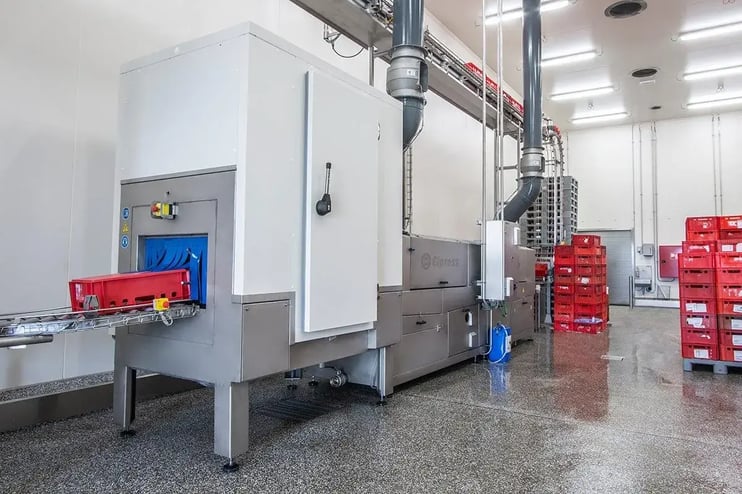Save water in your business by smart reusing

For businesses working in the food industry, water is an indispensable source within the production process. In the context of sustainable business, it is of paramount importance not to waste it, and to reuse it where possible. Such as, for example, cleaning your load carriers.
Water is used in many areas of the food industry every day: to wash products, to clean load carriers and to clean production rooms. Precisely because so much water is needed and because sustainable business is a more significant issue for many businesses, water-saving investment is currently more frequently becoming the rule rather than the exception. It is good to see that more and more businesses are taking their social responsibilities in this area.
Saving Water by Reusing
A nice way of handling water conscientiously is, for example, by investing in an industrial washing system for cleaning load carriers such as crates. It is, of course, a pity when water that is used for (manual) cleaning of a crate runs away directly into the drains. This water is particularly suitable for being used again and again in the washing process. An industrial washing system makes this possible. In the well-conceived design of the crate washers from Elpress, water is handled efficiently by using a filter system and a cascade system.
Counterflow Using a Cascade
A cascaded system is a system whereby the water comes down steps from a place higher up and streams down to a lower location. In this way, the clean water from the Elpress crate washer used in the re-rinsing area – to rinse off the remaining cleaning agent from the crate – runs into the main wash zone. Where it is re-used. In the same way, the surplus water from the main washing tank runs back to the pre-washing zone, where this recirculated water is particularly suitable for rinsing the coarse dirt residues from the crates.
Regenerating Water with a Filter System
To be able to use the washing water as long as possible, Elpress crate washers are provided with a filter system. Depending on the type of soiling and the load carriers used, it is determined which specific dirt filter and which filter technology is the best to be used. So a stationary filter drawer with a perforated plate, for example, is effective for light soiling. For crates with a high level of soiling, a rotating filter system is advisable. In particular, a rotating filter is self-cleaning: this ensures that the dirt can be drawn out directly and actively from the washing process, and this makes cleaning the filter by hand superfluous.
Crate Washers on ‘Stand-By’
To save extra water, the re-rinsing section is provided with a sensor. This records whether crates are actually present in the process. At the time that crates are no longer recorded in the re-rinsing section, for a set (short) time, the water supply in the re-rinsing section is automatically shut off and the pumps also go into ‘stand by’ to save energy. As soon as new crates come into the process, the system automatically goes back into operation.
More Information
Would you like to know more about the Elpress industrial washing systems? Then feel free to contact us – there’s no obligation. Our specialists would be pleased to advise you!

.webp)




